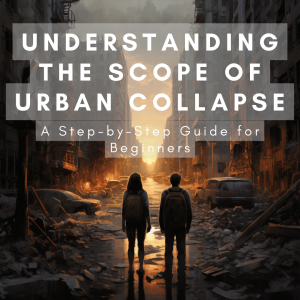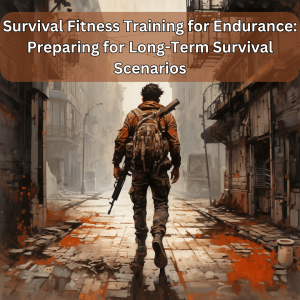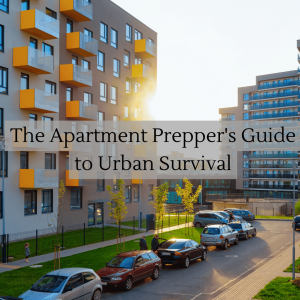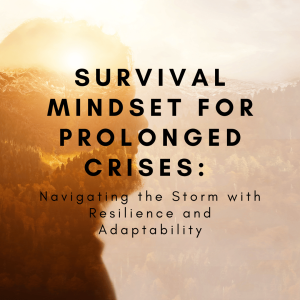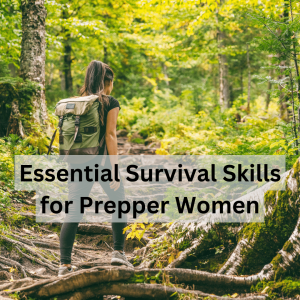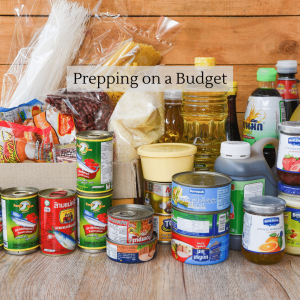Being prepared for the unexpected is a responsible approach to life. As urban dwellers, the apartment prepper will face unique challenges when it comes to survival preparedness. Limited space, shared resources, and close proximity to others necessitate a tailored approach to prepping. In this guide, we’ll explore essential tips and strategies specifically designed for apartment preppers, helping you navigate urban survival with confidence.
Embrace Minimalism and Prioritize Essentials
Space is a precious commodity for the apartment prepper, making it essential to adopt a minimalist mindset when it comes to prepping. Focus on accumulating the essentials that will sustain you during emergencies. Start by compiling a list of absolute necessities, including food, water, medical supplies, and tools. Opt for compact, multi-purpose items to conserve space. A foldable multi-tool, a compact first aid kit, and space-saving water purification solutions should be at the top of your list.
Efficient Food Storage
Storing an ample food supply in a small apartment can be challenging, but it’s not impossible. Consider the following strategies to optimize your food storage:
- Canned Goods and Non-Perishables: Stock up on canned foods, dried fruits, nuts, and other non-perishable items. These items have a longer shelf life and require minimal space.
- Meal Rotation: Regularly consume and replace stored food to avoid wastage and keep your stockpile fresh.
- Vertical Storage: Utilize wall-mounted shelves, hanging organizers, and vertical racks to maximize your storage space.
- Bulk Storage: Invest in airtight containers for bulk items like rice, beans, and grains to prevent pests and prolong shelf life.
- Dehydrated Foods: Consider dehydrated meals, which take up minimal space and offer balanced nutrition.
- Community Efforts: Coordinate with neighbors for group food purchases and storage to optimize resources.
Water Resilience
Access to clean water is a fundamental aspect of survival. For the apartment prepper, water storage and purification require will careful planning:
- Water Storage: Designate a corner of your apartment for water storage. Stackable water containers or collapsible water bags can fit in small spaces.
- Water Purification: Invest in a portable water filter or purification tablets. These compact devices can make questionable water sources safe to drink.
- Rainwater Harvesting: Explore the possibility of collecting rainwater from your balcony or rooftop. Ensure you research local regulations and use appropriate filtration methods.
Security and Safety
Urban environments can become unpredictable during emergencies, making security a top concern:
- Door Reinforcement: Strengthen your apartment door with security bars and reinforced locks to deter unauthorized access.
- Window Protection: Install window locks and consider reinforcing windows with security film to prevent break-ins.
- Emergency Contacts: Establish communication with neighbors and develop a system for sharing information during crises.
- Emergency Evacuation Plan: Familiarize yourself with emergency exit routes and assembly points in your building. Plan escape routes in case elevators are unavailable.
Energy Solutions
Maintaining access to power can be vital during survival situations for the apartment prepper:
- Battery Bank: Invest in a portable battery bank to keep your devices charged when the grid is down.
- Solar Chargers: Portable solar panels can be a sustainable way to generate power for small devices.
- Power Outage Kit: Keep flashlights, candles, matches, and portable lanterns in an accessible location.
Community Building
One of the most valuable assets in an apartment building is the community:
- Neighborhood Network: Build relationships with neighbors to create a support network during emergencies. Share skills, resources, and knowledge.
- Community Meetings: Initiate or participate in apartment building meetings to discuss emergency preparedness and establish protocols.
- Skill Sharing: If you possess specific skills (first aid, gardening, etc.), offer to share your expertise with neighbors.
Adaptability and Flexibility
Preparedness is an ongoing process that requires adaptability:
- Regular Check-Ins: Periodically review and update your emergency supplies to ensure they remain functional and within their expiration dates.
- Training and Education: Equip yourself with skills such as basic first aid, fire safety, and self-defense.
- Scenario Planning: Envision different emergency scenarios specific to urban living and develop plans for each situation.
Living in an apartment doesn’t mean you have to sacrifice your preparedness. With careful planning, resourcefulness, and community engagement, you can thrive in an urban environment, even during times of crisis. Remember, the key to successful apartment prepping lies in minimalism, adaptability, and fostering a sense of community resilience. By following these tips and strategies, you’ll be better equipped to face any challenges that come your way.
